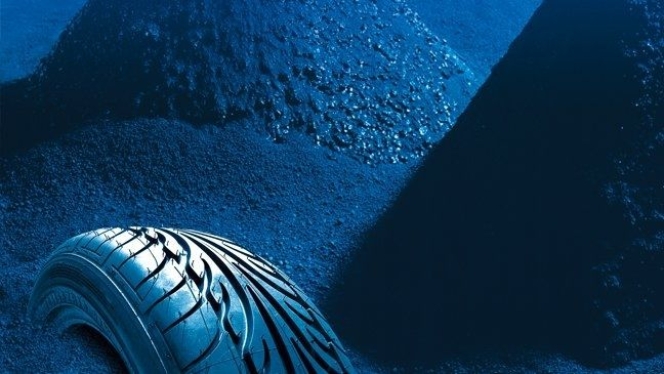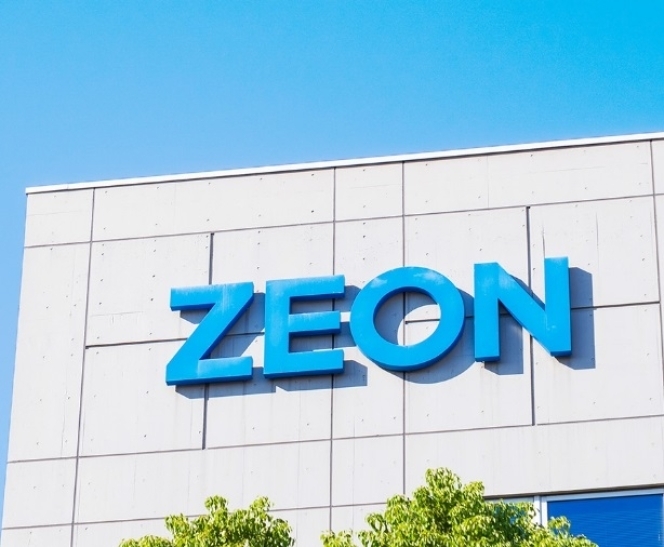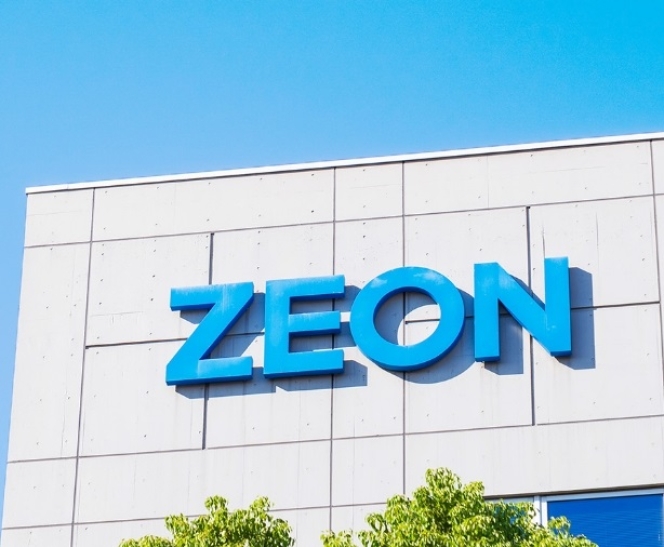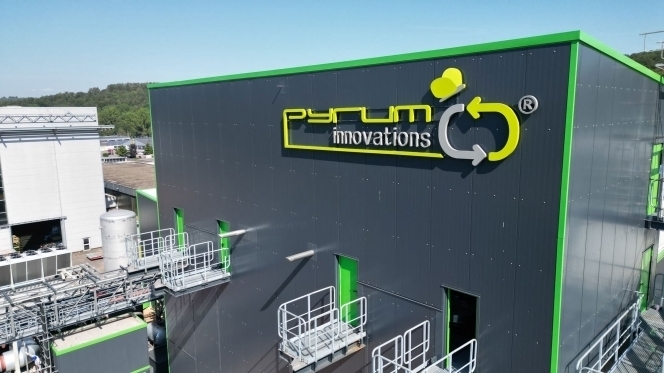
Zeppelin Systems has been awarded the engineering contract for constructing a second ReOil pyrolysis plant, with construction slated to commence in February 2024.
By establishing this new pyrolysis plant, ReOil has significantly expanded its annual recycling capacity, now capable of processing approximately 60,000 tons per year. This state-of-the-art facility, covering roughly 27 acres, is a testament to the ingenuity and engineering expertise provided by Zeppelin Systems.
Having already supplied the initial engineering groundwork for the new plant in 2019, Zeppelin Systems has been awarded the completion contract, underscoring the high level of customer satisfaction. As the primary engineering partner, Zeppelin Systems delivers comprehensive turnkey solutions, encompassing plant technology, process engineering, and final plant planning, all from a single source.
“A flagship project for Zeppelin Systems with a signalling effect. Only a few companies can implement such complex and extensive projects virtually anywhere in the world,” says Dr Markus Vöge, CEO of Zeppelin Systems GmbH, adding: “The aim is to offer process solutions in the future that can be provided as part of license models. For example, the ELT pyrolysis plant as a turnkey product from Zeppelin Systems.” Guido Veit, Vice President of Sales, Plastic and Rubber at Zeppelin Systems GmbH, adds: “ReOil’s engineering contract is the first project as part of the Zeppelin Sustainable Tyre Alliance. This makes us proud and demonstrates the strength of the alliance. In addition, we will continue to work hard to bring additional processes to technological maturity and strengthen the network in terms of the circular economy.”
ReOil Managing Director Paweł Mikuśkiewicz is also delighted with the very successful partnership between Zeppelin Systems and ReOil: “We knew that this major project could only be planned and built with the help of an experienced and internationally active plant engineering partner. That’s why we chose Zeppelin Systems, and we really appreciate our long-standing, trusting business relationship.”
Zeppelin Systems, a trusted partner in plant engineering for the rubber and tyre industry, has taken a significant step towards a more sustainable future by launching the Zeppelin Sustainable Tire Alliance in March 2023. This collaborative initiative aims to work alongside global partners in reshaping the tyre production and recycling process in a more environmentally conscious manner.
Among the esteemed members of this technology alliance is the Polish firm ReOil, known for establishing Europe’s largest pyrolysis plant dedicated to recycling old tyres in 2015. Over the years, ReOil has successfully recycled approximately 20,000 tonnes of old tyres annually. Once operational, this colossal plant is expected to reintegrate about 60,000 tonnes of old tyres into the sustainable circular economy annually.
ReOil, a leading operator in raw material recycling, employs continuous pyrolysis to break down rubber from discarded tyres into valuable substances like gas, oil and recovered Carbon Black (rCB). These recycled materials find application in various industries, including textiles, tyre manufacturing, rubber components, plastics, steel production, and even aviation fuel. Since its commissioning in 2015, ReOil has effectively recycled around 70,000 tonnes of old tyres, reaching a stable and profitable operational state in 2020.
Zeon And Visolis Sign Binding Term Sheet To Advance Bio-Isoprene And SAF Commercialisation
- By TT News
- February 16, 2026

Zeon Corporation and Visolis Inc. have formalised their partnership by signing a binding term sheet, marking a pivotal advancement in the commercialisation of bio-based isoprene monomer and sustainable aviation fuel (SAF).
This collaboration, which now moves from technology verification towards project implementation, is built upon the progress made since their initial memorandum of understanding in March 2024 and the subsequent joint feasibility study announced in April 2025. Bio-based isoprene monomer serves as an essential component in the production of synthetic rubbers and various other materials, while SAF is increasingly recognised as a critical next-generation fuel for reducing carbon emissions within the aviation industry.
The newly established term sheet outlines a foundational agreement on the key elements required for a final investment decision. These include defining the business structure and the respective roles of each company, establishing technology and development strategies and advancing detailed engineering for the proposed production facility. Furthermore, the agreement covers the evaluation of potential sites, the process for engaging with suppliers, securing necessary regulatory approvals and planning the financing pathway.
The envisioned facility is set to commence commercial-scale output after successfully demonstrating mass production capabilities for biomass-based isoprene and SAF, utilising Visolis’ proprietary technology. Both companies are now committed to expediting the path to full-scale production and ensuring a steady supply of these sustainable products to the global market.
Zeon Backs Chemify To Accelerate Digital Chemistry Innovation
- By TT News
- February 12, 2026

Zeon Corporation has deepened its commitment to digital chemistry through a strategic investment and partnership with Chemify Limited, secured via its corporate venture arm Zeon Ventures Inc. Chemify, a growth-stage UK enterprise, is reshaping molecular research by integrating digital tools with automated laboratory systems. Its proprietary Chemputation technology translates molecular targets into executable chemical code, which operates directly on robotic platforms to complete integrated Design–Make–Test–Analyze cycles without manual intervention. This closed-loop automation allows Chemify to explore previously inaccessible areas of chemical space while reducing the timeline from concept to synthesized compound by up to tenfold.
A cornerstone of Chemify’s capability is its recently inaugurated Chemifarm in Glasgow – one of the most sophisticated automated facilities in the world for molecular design and construction. The facility enables accelerated iteration and autonomous synthesis of novel small molecules, converting chemical code into tangible compounds with unprecedented efficiency. These advances are critical for developing functional, synthesisable molecules that can contribute solutions to urgent global issues spanning public health, energy efficiency and environmental protection.
Zeon has been at the forefront of adopting digital methodologies in chemical R&D, recognising their transformative potential from an early stage. This investment is positioned to strengthen Zeon’s internal digital chemistry efforts and catalyse the invention of novel materials capable of addressing complex societal needs. The move aligns with Zeon’s STAGE30 corporate strategy, which targets a rise in revenue contribution from four key growth sectors – Mobility, Healthcare and Life Sciences, Telecommunications and Green Transformation – to 48 percent by fiscal 2028. By backing pioneering enterprises and cultivating advanced materials, Zeon continues to advance its dual vision of a sustainable planet and a secure, progressive society.
- Rubber Board Of India
- Rubber Producers’ Societies
- Sulphur Dusting
- Powdery Mildew
- Rubber Plantations
- Rubber Board Subsidy
Rubber Board Announces Sulphur Dusting Subsidy For Rubber Producers
- By TT News
- February 09, 2026

The Rubber Board of India has announced the opening of an application window for financial aid for sulphur dusting to combat powdery mildew disease in rubber plantations for the year 2026. The scheme is open to all Rubber Producers’ Societies (RPS) operating in both traditional and non-traditional growing regions.
From 10 to 20 February 2026, eligible societies must submit their applications online through the 'ServicePlus' portal on the official Rubber Board website. Societies requiring help with the submission process are advised to contact their nearest Rubber Board regional office or field station, or to consult the board's website for further guidance.
French Recognition Of TPO Bolsters Pyrum's Circular Economy Model
- By TT News
- February 09, 2026

Pyrum Innovations AG has welcomed the official recognition by French authorities on 17 January 2026, which classifies tyre pyrolysis oil (TPO) as a legitimate raw material for the chemical sector. This pivotal regulatory milestone for pyrolysis oil derived from end-of-life tyres substantially enhances the product’s integration into established chemical value chains. It also provides greater predictability for future purchase and partnership frameworks, thereby accelerating the development of industrial material cycles.
For Pyrum, which processes scrap tyres through pyrolysis to recover pyrolysis oil, industrial carbon black and steel, this decision underscores the critical need for standardised and reliable regulatory conditions. Such clarity is fundamental for scaling investments, production volumes and supply chains, particularly as the chemical industry and circular economy converge. The establishment of clear product categories is essential to ramp up the market for high-quality recycled raw materials.
The company remains committed to tracking further developments in France and the wider European dialogue regarding the classification and application of recycled feedstocks. Pyrum’s overarching objective is to expand industrial-scale recycling solutions for scrap tyres. This regulatory progress directly supports the company’s mission to secure long-term, quality-assured supply agreements with partners across the chemical industry, thereby advancing a more sustainable and circular economic model.
Pascal Klein, CEO, Pyrum Innovations AG, said, “The decision in France is an important step for the industrial use of pyrolysis oil from waste tyres. It supports a trend that we are seeing in many markets, where the chemical industry is seeking reliable, technologically robust and clearly classified alternative raw materials.”







Comments (0)
ADD COMMENT